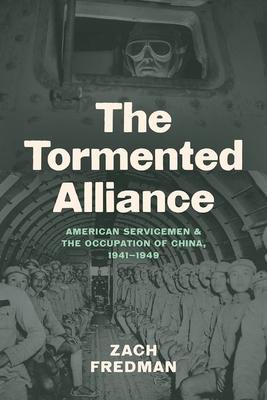
Book
The Tormented Alliance: American Servicemen and the Occupation of China, 1941-1949
by Zach Fredman
(Write a Review)
Paperback
$34.96
Fredman reveals how each side brought to the alliance expectations that the other side was simply unable to meet, resulting in a tormented relationship across all levels of Sino-American engagement. Entangled in larger struggles over race, gender, and nation, the U.S. military in China transformed itself into a widely loathed occupation force: an aggressive, resentful, emasculating source of physical danger and compromised sovereignty. After Japan's surrender and the spring 1946 withdrawal of Soviet forces from Manchuria, the U.S. occupation became the chief obstacle to consigning foreign imperialism in China irrevocably to the past. Chinese leader Chiang Kai-shek lost his country in 1949, and the U.S. military presence contributed to his defeat. The occupation of China also cast a long shadow, establishing patterns that have followed the U.S. military elsewhere in Asia up to the present.
Fredman reveals how each side brought to the alliance expectations that the other side was simply unable to meet, resulting in a tormented relationship across all levels of Sino-American engagement. Entangled in larger struggles over race, gender, and nation, the U.S. military in China transformed itself into a widely loathed occupation force: an aggressive, resentful, emasculating source of physical danger and compromised sovereignty. After Japan's surrender and the spring 1946 withdrawal of Soviet forces from Manchuria, the U.S. occupation became the chief obstacle to consigning foreign imperialism in China irrevocably to the past. Chinese leader Chiang Kai-shek lost his country in 1949, and the U.S. military presence contributed to his defeat. The occupation of China also cast a long shadow, establishing patterns that have followed the U.S. military elsewhere in Asia up to the present.
Paperback
$34.96